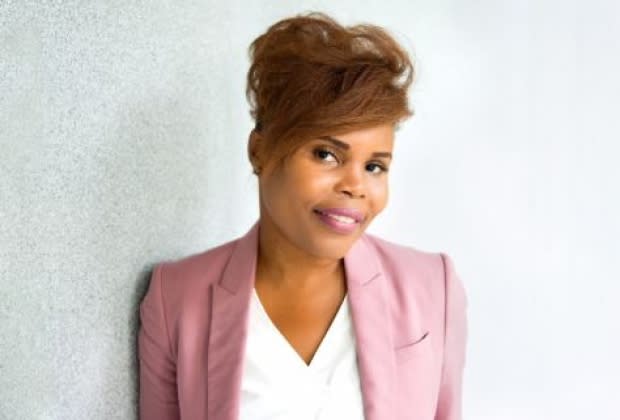Cat calls and dark streets: Women talk about making street safer at UN forum
Jay Pitter grew up in a Toronto social housing complex with dark corners and not much green space.
"It was an enclosed, four-block radius, primarily occupied by single mothers and children," she said in an interview on CBC's Radio Active on Tuesday.

"Being so incredibly isolated, not having designated green space, not having things like libraries, or a swimming pool, but having a basketball court that was below street grade, with one entrance in and one entrance out ... it really created the perfect setting, the perfect backdrop to illegal activity."
Pitter was a keynote speaker at an international forum being held in Edmonton this week. More than 250 delegates from 25 countries have come to discuss how to make public spaces safer for women and girls as part of the Safe Cities and Safe Public Spaces Global Leaders' Forum.
When she was 12, Pitter learned the sister of a friend had been murdered nearby. She also started travelling to other parts of Toronto, which she discovered looked — and consequently, felt — different.
"I knew that in our city there were two very distinct realities," she said. "I knew that I wanted to be someone who played an active role in creating one reality within a single city, and that's a reality of safety and prosperity and joy."
Pitter is now a city-building consultant who has provided input into Edmonton's heritage plan. Her work also focuses on making urban spaces safer for woman — making transit safe, educating about street harassment, or highlighting the needs of homeless women, who are particularly vulnerable.
"Women rely on transit more," she said. "They run errands, drop off kids at daycare, go to work. We need to make sure that women have good transit, transit that runs all night; well-lit stations that are accessible for strollers and women with mobility challenges, frequently running transit. We know if a woman gets stuck on the streets at 11:30 at night and she's waiting for a bus, she's vulnerable."
'It happens all around the world'
While Edmonton is half a world away from Kigali, Rwanda, or New Dehli, India, women everywhere face many of the same challenges, said Jackie Foord, branch manager for social development for the City of Edmonton, which is co-hosting the conference along with United Nations Women.
"The rate of sexual and physical violence against women and girls in public spaces is high — street harassment, being groped on a bus, it happens all around the world," Foord said.
"People often think this is an issue for other countries ... we think we don't have those problems, but we do. We know street harassment is a big problem in the city of Edmonton. Do women feel safe on public transit? Do they feel safe walking home alone at night?"
We don't want to be saved by the men of our country. We want equality. - Suneeta Dhar

But the responses to such problems can differ from place to place. In Egypt, for example, women's groups have advocated for tougher laws to deal with street harassment, said Maya Morsy, president of the country's National Council for Women.
"It was extremely important when we started this work in Egypt that we have to work on legislative change," she said. "There should be harassment laws that are announced, that women know about, and increasing penalties for sexual harassment."
Morsy noted educational campaigns are needed for both men and women.
"It's the mentality. You can have the best policies and the best legislation, but if the community itself doesn't change its perception of women, we're not doing anything."
In India, where incidents of brutal sexual assault on transit have garnered international condemnation, there have also been grassroots efforts to prompt legislative reform, said Suneet Dhar from the feminist organization Jagori. They have pushed for more accountability from politicians, and consideration of the gender gaps that exist when it comes to services such as sanitation, water and lighting.
But Dhar also highlighted the need for changes in how society views women.
"We don't want protection, we don't want to be saved by the men of our country," said Dahr. "We want equality. We want a non-discriminatory environment. We want rights."

